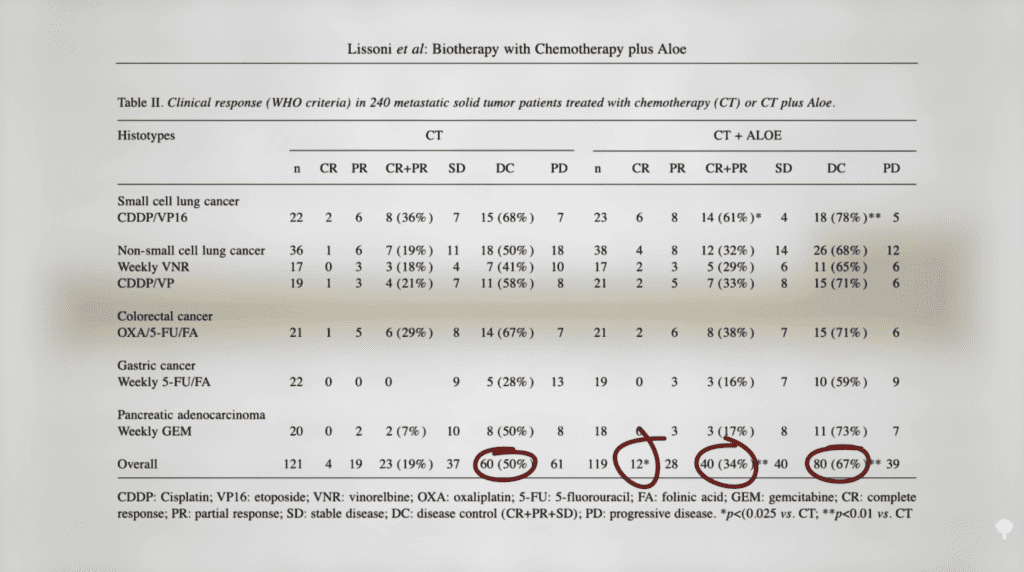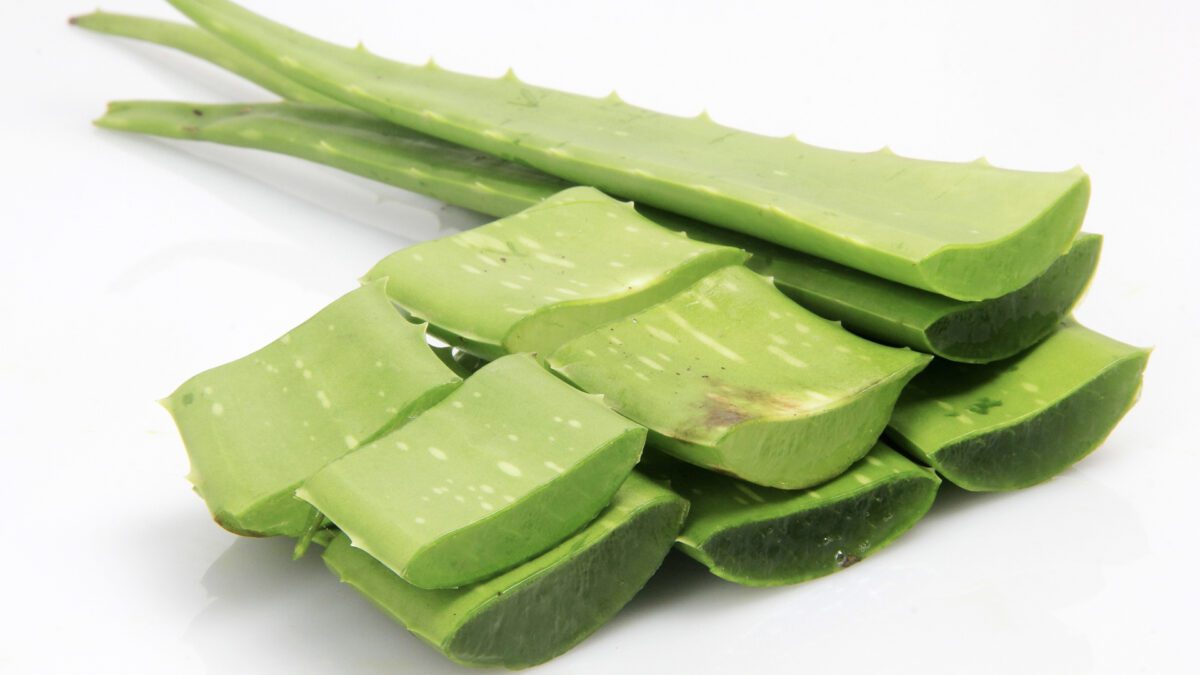Melissa Mitri, MS, RD, is a registered dietitian nutritionist, weight loss specialist, and expert health writer with over 15 years of experience in the health and wellness industry. Melissa has worked in a variety of healthcare settings where she helps clients improve their diet through an individualized approach.
Cancer is one of the most daunting health challenges of our time. More than ever before, researchers are continuously seeking out safer and more effective treatments, such as aloe for cancer.
Aloe, or aloe vera, is a species of aloe plant derived from the lily family. When you think of aloe vera, you might first consider its benefits for skin and wound healing. However, it may also have the potential to inhibit cancer growth.
Keep reading to learn more about aloe vera, the research on aloe and cancer, and how to start a conversation with your doctor on this topic.
What is Aloe Vera?
Aloe vera is a humble, succulent plant with a long history of medicinal use. It is native to the African and Arabian peninsula and is used to treat various ailments. These may range from skin conditions to digestive issues such as constipation.
Aloe vera’s thick, fleshy leaves are rich in essential vitamins, minerals, and antioxidant compounds. It is most commonly used as a topical agent but is gaining interest for both topical and oral use in combination with conventional cancer treatment.
It is available as a topical gel or cream, or the gel can be consumed orally or as a juice.
We asked Dr. Enrizza Factor, a Board-Certified Dermatologist about the novel use of aloe vera for cancer. This is what she had to say: “Aloe vera may be an effective anti-neoplastic agent to inhibit cancer cell growth and increase the therapeutic efficacy of conventional drugs like cisplatin. This promotes the development of plant-derived therapeutic agents, and appears warranted for novel cancer treatment strategies.”
Aloe for Cancer
Several studies have tested the aloe and cancer connection. Based on these studies, over 75 active compounds in aloe vera were seen to be of potential therapeutic value in cancer treatment.
A particular aloe extract called aloe-emodin has been identified as having potential anti-cancer properties. In particular, it may protect against several types of cancer including breast, head and neck cancer, and cancer of the colon. It also may protect against a brain and spinal cord cancer called glioblastoma.
According to Dr. Factor – “several studies have looked at an aloe extract called aloe-emodin. One showed that it could block the growth of some head and neck cancer cells in test tubes. A recent study in 2018 showed that aloe-emodin might slow down the growth of glioblastoma cells.”
Another study looked at the potential pathways in which aloe emodin led to colon cancer cell death. Results showed aloe-emodin may induce colon cancer cell death through the mitochondria. These are the energy centers of our cells.
There is also a clinical trial currently underway testing the use of aloe vera juice to manage oral mucositis and esophagitis side effects from radiation treatment.

Additional Aloe and Cancer Studies
Regarding aloe vera dosing as an anti-cancer agent, the recommended dose is not yet standardized.
In one study according to Dr. Factor “The researchers used a mixture of about two-thirds of a pound of fresh aloe leaves to a pound of honey. They also added about three tablespoons of 40 percent alcohol. It was given orally at a dose of two teaspoons three times a day starting six days prior to the onset of chemotherapy.”
Ongoing research shows promise in terms of aloe vera for cancer, but larger human studies are needed. For now, it is recommended to always speak to your doctor about using aloe vera as a combined cancer remedy . This should be considered alongside conventional treatments like chemo and radiation, not as a standalone treatment.
Other Benefits of Aloe Vera
While the research on aloe vera and cancer is still ongoing, there are several other health benefits of aloe vera supported by science.
According to Dr. Factor, “Aloe vera contains healthful plant compounds, has antioxidant and antibacterial properties, and accelerates wound healing. It also reduces dental plaque, helps treat canker sores, and can reduce constipation.”
Perhaps the most studied benefit of aloe vera is its role in skin health and wound healing. For example, one study reviewing 23 clinical trials suggested aloe vera can be used as a complementary treatment for wound healing.
Bottom Line
Aloe vera, a humble cactus-like plant may hold the key to unlocking new possibilities in the fight against cancer. More research is needed in the cancer and aloe vera arena, it is clear that aloe vera is rich in antioxidants that support overall health and well-being.
But like any health remedy, there is always the potential for side effects. Per Dr. Factor “Aloe vera may cause side effects such as abdominal cramps and diarrhea.” Speak to your doctor if you’re curious about aloe vera and how it can be used properly.
And lastly, eating a balanced diet with the most essential nutrients will keep your mind and body strong as a cancer survivor.

Melissa Mitri, MS, RD, is a registered dietitian nutritionist, weight loss specialist, and expert health writer with over 15 years of experience in the health and wellness industry.
Melissa has worked in a variety of healthcare settings where she helps clients improve their diet through an individualized approach.
- Latest Posts by Melissa Mitri, MS, RD
-
Planning Healthy Meals On A Budget
- -
5 Worst Foods For Arthritis
- -
5 Easiest Fruits and Vegetables to Grow, and Which To Buy
- All Posts

